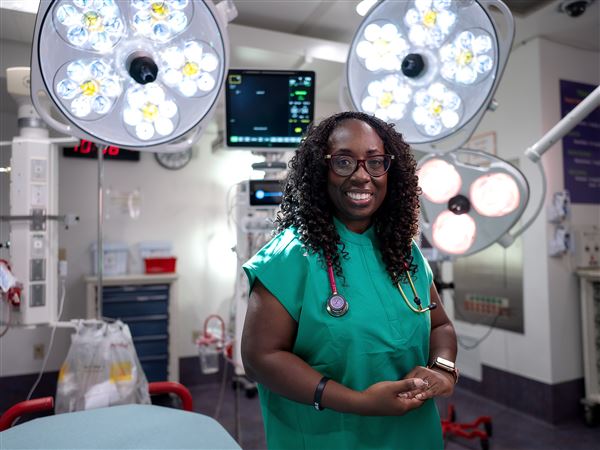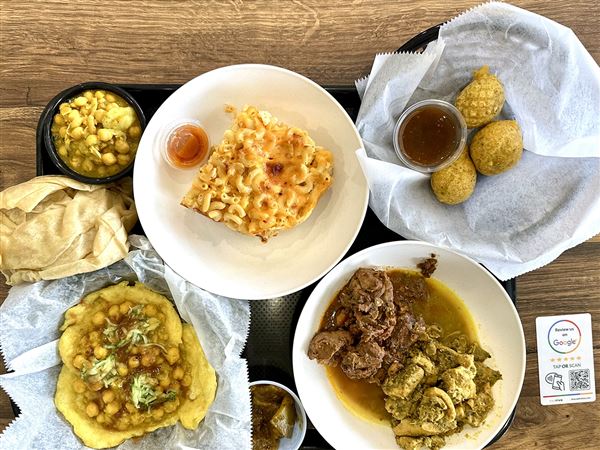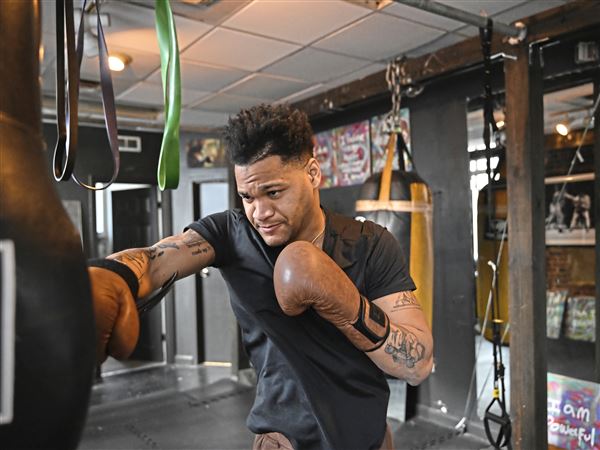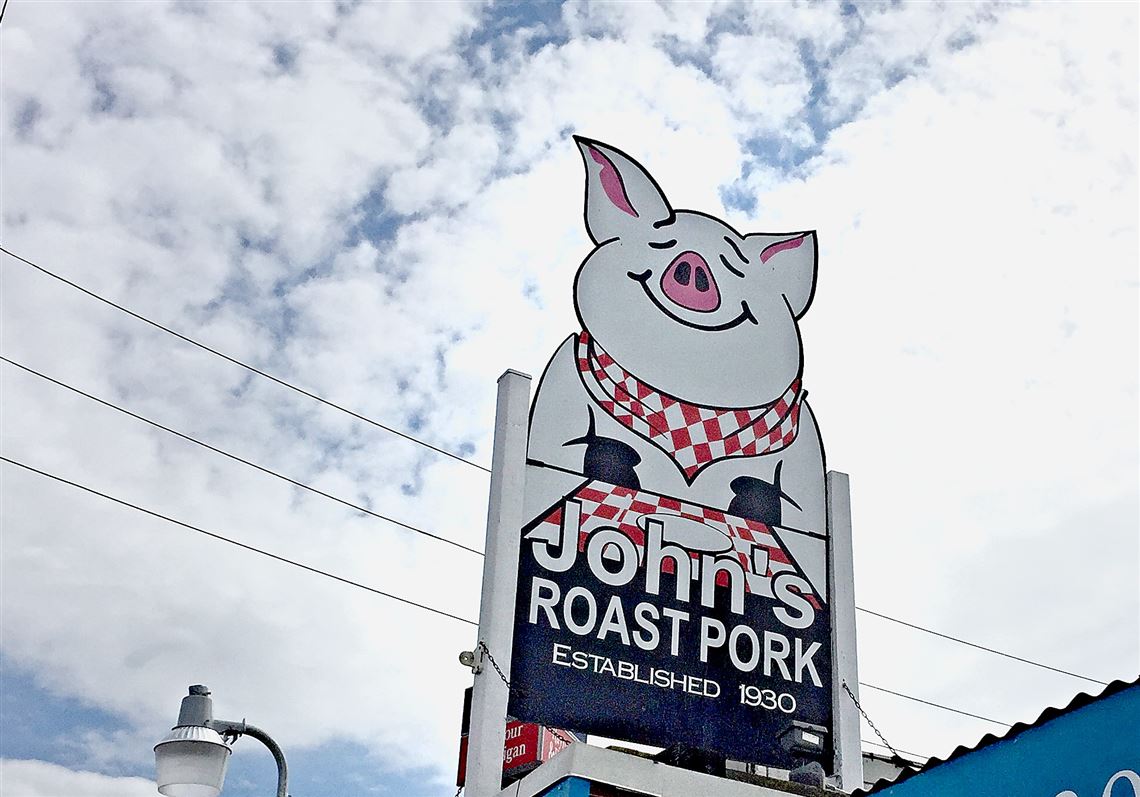SOUTH PHILADELPHIA — Amid the narrow, rowhouse-lined streets bordered by cars parked so tightly their bumpers look fused together, we are careening down South Seventh Street, away from Lincoln Financial Field as the sun set on the Steelers worst loss in 27 years. The F-bombs are flying out of the driver’s mouth, and his preferred Marlboro cigarettes — red — match the tiny Ford Focus we are crammed into.
“This is my town,” he assures us. “I’ll gitchoose where ya goin.’ He’s Mike, a middle-aged neighborhood native, annoyed that he witnessed a pair of cabbies decline our fare after the game and offered us a lift. Mind you he’s supposed to be delivering pizzas and it’s a bit like being taken around town by Frank Reynolds — Danny DeVito’s indelicate character on “It’s Always Sunny in Philadelphia” — but it’s a mix of warmth and hostility that’s uniquely Philadelphian.
■
After melting in the sun all day, watching the Steelers get their ears kicked in two weeks ago, my friend and I were desperate for a good meal to get the bad taste out of our mouth. Our chosen destination was Zahav (237 St. James Place, 19106), the acclaimed Israeli restaurant that Eater named one of the 38 most essential in the country and declared “No place else in America serves such a sensuous, transporting and finely wrought feast.”
We really fit the part, too: with a patina of dried sweat, after a few exorbitant stadium beers, clad in blue jeans, flip-flops and Hines Ward and Troy Polamalu jerseys. But I was only there overnight, and besides, my Terrible Towel bears the name of a guy who grew up in Squirrel Hill and went to Allderdice High School, just like Zahav chef and co-owner Michael Solomonov, who’s cookbook, “Zahav: A World of Israeli Cooking” was the James Beard Foundation’s Book of the Year and Best International Cookbook. Yoi!
Perched in the shadow of architectural icon I.M. Pei’s elegant and understated Society Hill Towers, the restaurant’s interior is likewise sleek and tasteful. With no reservation, we scored bar seats after a short wait and were taken care of by Chris, an exceptional bartender who guided us through what has to be the best value Prix Fare menu in America: $45 for the Tayim (or taste of Zahav), a Middle Eastern culinary tour nonpareil.
The salatim, a daily selection of salads, came first and was a gorgeous array of colors and tastes that included twice-cooked eggplant with peppers, onions and sherry vinegar; and corn with peaches and Serrano pepper, a simply incredible flavor combination.
Regarded by some as the finest in the country, the Tehina hummus is served with laffa (flatbread akin to a pita) that’s baked on-site in a wood-burning oven. With sesame, garlic, lemon, olive oil, cumin and parsley, and the du jour topping of dragon beans, this was an incredible elevation of a traditional food now ubiquitous at grocery stores and deli counters.
The Mezze course yielded a perfectly offal — not awful — dish. Grilled duck hearts aren’t for the faint of, y’know, but this was entirely too interesting to pass up. A bit chewy with a mineral taste, offset with a spread of tehina, dukkah and okra is right up there with fried tripe or head cheese as a delicious dish that removes you from a comfort zone.
The rich dish contrasted well with a plate of lightly fried cauliflower, served with labneh — a yogurt with chive, dill, mint and garlic and Aleppo (don’t ask Gary Johnson, but it’s a pepper bearing the name of the Syrian city).
Grilled over coals, the flavors of ember and smoke subtly permeated a skewer of the Sirloin shishlik to wonderful effect, and the harissa, eggplant baba ganoush, and grilled tomato were an excellent complement.
The evening’s proceedings were punctuated with a shredded phyllo dough, chocolate ganache with yogurt ice cream, candied orange peel and blueberries.
During conversation, our bartender noted that he was headed to Pittsburgh soon himself, to visit some ex-coworkers now employed at Cure in Lawrenceville. I can only hope he had as good a time here, even if he wore a Carson Wentz jersey to dinner.
■
Prior to the game, we’d girded ourselves for hours of verbal abuse from Eagles fans (which, thankfully, never materialized) by scarfing down hoagies from Sarcone’s Deli (734 S. Ninth St., 19147).
While there are conflicting accounts of the exact origin of the word and the sandwich, what’s undisputed is that “hoagie” is a Philadelphia original. Pittsburgh regularly uses the word, too, but to describe basically any sandwich, hot or cold, that comes on a submarine bun (or baguette), including a cheesesteak. That would make the Liberty Bell-crowd crack up, as in Philadelphia it’s almost explicitly an Italian cold-cut sandwich.
Sarcone’s has what’s widely regarded as one of, if not the best, with bread baked daily at its 98-year-old neighboring parent bakery, Luigi Sarcone & Son. That element truly makes the Old Fashioned Italian an outstanding sandwich, along with the hot coppa and soppressata, thin prosciutto, thick cuts of funky sharp provolone, beautiful red tomatoes and a perfect mix of oil and vinegar seasoning the bread.
For Monday lunch, however, two other Philadelphia gifts to sandwich-dom were on the menu: a cheesesteak and a roast pork, both from John’s Roast Pork (14 E. Snyder Ave., 19148), which was designated as an “American Classic” by the James Beard Foundation in 2006.
Ordering at John’s is to have a mini-Soup Nazi experience. No one is downright surly, but it’s Philadelphia and even when they’re nice they’re still a little brusque. The size of a dentist’s office waiting room, it’s packed. The staff moves fast and you don’t want to be the one to gum it up. One line is for cheesesteaks, the other for the roast pork. Place order. Wait. Get your sammie. Pay. Goodbye.
The cheesesteak was everything one could hope for: 12 ounces of fresh chopped loin tails from Nellie’s Provisions in New Jersey, with grilled Spanish onions, bound together with gooey American cheese on a sesame seed roll from the Carangi Baking Co. This is Philadelphia perfection. But here, it still plays second to the roast pork.
Falling somewhere on the sandwich spectrum between a classic Italian porchetta and the pot roast moisture of a Chicago Italian beef, this is a massive sammie — a pound of wet and wonderfully seasoned pork, with provolone and braised greens, sopped up by a sponge of an Italian bun.
Simple and perfect, they’ve been serving them up for 86 years at John’s. This is universal fare and outside every stripe imaginable — blue-collar, white-collar, artist-hipster types, students, elderly, black, white, Hispanic, Asian, Indian — sit on picnic tables and mow down, across from a chemical factory. It’s like the models from a Benetton ad and characters in a Bruce Springsteen song all met up for lunch.
■
Rocky Balboa started his fabled (albeit fictional) run through the South Ninth Street Italian Market district in South Philadelphia, and I was instructed to not dare leave town without a visit.
Across town, the Reading Terminal Market (12th and Arch streets) has rightly earned national praise as one of the country’s premiere food halls — a place where everything from fresh oysters to scrapple to soul food and schawarma are under a single roof.
The Italian Market, however, is like the Strip District writ large: all street level retail that retains a gritty old city feel and appeal. Many merchants have been there for decades, some more than a century.
The controversial deceased former Mayor Frank Rizzo still presides over the neighborhood in the form of a giant mural. Fresh sausages, pigs feet and pork belly slabs are on display in the window at Cappuccio’s Meats butchers. At Claudio’s Specialty Foods (924 S. Ninth St., 19147), cheese blocks as big as human torsos hang from the ceiling and a helpful sign reminds that “Shoplifting can get you killed.” A clerk there rides me the whole time for my Steelers cap, but it’s a fun kind of backslapping, chop-busting, done with a wink and a smile.
You can smell the sweet goodness from across the street wafting out of the ovens at Isgro, the 112-year-old bakery (1009 Christian St. 19147). The display case may as well be an altar to pastry and dessert, and indeed an Isgro lemon pound sheet cake was served to Pope Francis himself during his visit to Philadelphia last year.
The Mascarpone cannoli is worthy of “The Godfather’s” Peter Clemenza, but the sfogliatella is worth enduring the turnpike for. Translated literally as “lobster tail,” this crunchy, flaky pastry hails from Campania in southern Italy. It’s wound into tight spirals like a Slinky, and ensconces a liberal dollop of a light orange ricotta. This is without question the most perfect baked good I’ve ever eaten.
■
I’d rarely visited our eastern brethren, perhaps subconsciously due to a lifetime of loathing Philadelphia sports teams, opting instead for long weekends in Washington, D.C., New York or even Baltimore. However, after 25 hours packed with culinary color, it’d be hard not to disagree with W.C. Fields that relative to those destinations (or death, as he meant it), on the whole, I’d rather be in Philadelphia.
Dan Gigler: dgigler@post-gazette.com; Twitter @gigs412.
First Published: October 9, 2016, 4:00 a.m.

















